Conservation Internships: A Rite of Passage or a Catch-22?
- ConScience

- Mar 29, 2023
- 6 min read
Updated: May 15, 2023
By Kacey St John, a 2nd year BSc Zoology student at the University of Exeter
Industry experience: a term that may strike fear into the hearts of undergraduate and graduate students alike. It’s no secret that the conservation field is highly competitive, and with expectations for applicants getting higher each year, the need for relevant field experience has become critical to the career prospects of students.
If this is the case, why is it that, unlike other sectors in the UK, we seem stuck in the past when offering such vital experiences to the next generation of conservation scientists?
A quick search on any job board (including those run by universities, targeted for students) clearly highlights the disparity between funded internships in the ecology and conservation field and the likes of business, economics, and marketing. It has become an expectation that those who wish to pursue a career in conservation, who are often already heavily in debt from their studies, should support themselves financially alongside a full-time unpaid role or with minimal support with housing arrangements; for at least a short portion of their early career to gain experience. Not only this, but many placement opportunities often charge fees in exchange for the chance to pick up relevant skills. Failing that, most students set their sights abroad, again paying massive fees and travel costs for the chance to enhance their CV. Whilst these programmes are successful and have high satisfaction rates, it wasn’t until I started speaking with international students (especially those from the US), that I found this is not usually the primary way of gaining experience. Being an undergraduate student myself, I have lived these experiences, taking part in paid, unpaid and ‘pay-to-play’ experiences, all to try and make myself more competitive in the research job market.
For graduates, the catch-22 situation of the work experience paradox means that it is increasingly difficult for students to avoid these situations where they must work for free for extended periods of time to gain the experience required for roles - further driving the voluntourism industry and lack of diversity in the conservation science field. This often gives the impression that only those from certain socio-economic backgrounds can make a career out of conservation; an ideology that conservationists work hard to challenge.
1. Benefits of voluntary internships to conservation organisations
Photos from my time volunteering as a research assistant studying sea turtles. Left - here I am measuring hatchlings, one of the many tasks I took part in. Right – I also took part in nest excavations, in this image I am taking measurements of the distance between the nest and the waterline of the sea. I paid a fee to cover expenses and to fund the research project, in addition to my transport. Image credit: Society for the Protection Of Turtles (SPOT).
A supply of vital funds/manpower
With the funding of research projects already under pressure, it is totally understandable that having free labour/ paying volunteers is a smart way of securing and preserving precious funds for research and conservation action. With minimum stay requirements, it is easy to train and collect significant amounts of decent-quality data with a team of volunteers. Surveying efforts can be multiplied, and other tasks often abandoned or put on the back burner can be addressed, making efficient use of time in the field.
Recruiting students with the right motives
When utilizing volunteers and interns, it is critical to ensure you have a strong team that is motivated to do the work at hand. By removing the incentive of pay, many organisations will attract only those who have a genuine passion for the work and a drive to advance their skills and prove to be valuable assets. As the industry becomes more competitive, the caliber of personnel applying for these roles is also increasing, leaving many organizations spoilt for the choice of volunteers.
Sustainable tourism
Volunteers can be utilised for a multitude of tasks, ranging from assisting research to active habitat regeneration. In combination with bringing money into potentially less economically developed countries, hosting paying interns who are also tourists can be lucrative not only for conservation but for the local community too. This is found more in ecotourism and conservation volunteering holiday packages, which often set aside resources to help support the local community as part of the experience.
2. Barriers created for early-career conservation scientists by voluntary internships
A pair of elephants (left) and a male lion cub (right) I recorded as part of my large game monitoring activities during a placement at a private game reserve. A fee was paid to participate in this conservation experience, considered ecotourism. Images credit: Kacey St John
Disadvantaged students excluded
Living as a student in the UK can be very financially demanding, especially with the current cost of living crisis. Lack of financial support from placement employers, therefore, puts students in the difficult position of either trying to juggle a job whilst carrying out a placement or having to put their career pursuit on hold whilst they save to afford to take part in these opportunities. Student finance (a service provided by the Students Loan Company, issuing loans to most UK students) will not typically issue the same amount of maintenance loan for a placement year, further forcing students to make difficult decisions based on their financial status. This drives a major division between students that can afford to participate in unpaid/pay-to-play experiences and those that can’t, excluding a large proportion of students which have just as much passion, skill and drive as their more privileged peers. Whilst some grants are available, these are often means-tested and do not cover the entirety of trips, meaning students and recent graduates are expected to make up any shortfall. A lack of diversity in the field will therefore persist for as long as this exclusion dominates.
Potential practitioners move to easier sectors
If students and early-career scientists repeatedly encounter hurdles to gain the experience required for a future role, many will eventually give up. The constant drain of financial and job insecurity will deter people from pursuing a career in this field, losing many potential brilliant practitioners for the future – an immeasurable cost in our current climate and ecological crisis. Whilst there is debate over the already fiercely competitive conservation sector needing even more applicants, I feel it is still important to consider what could be lost from those that do turn away from conservation science.
Paid experience is becoming the standard requirement
A shift in the requirements for many ecology and conservation roles now means that many companies have begun to prioritise paid experience from candidates, fuelling the work experience paradox further. Not only this, but unpaid placements are now becoming more undesirable and frustrating to students who wish to go into employment swiftly, amplifying the issues covered above.
3. How can we better support early-career conservation scientists
My most recent volunteering experience was as a research assistant to a PhD student studying the common frog (R. temporaria), including this ambitious male trying to mate with a female toad (left). I learnt many skills in field herpetology with British species, including the catching and handling of wild amphibians (right). This experience incurred no cost to me and taught me valuable skills. Images credit: Kacey St John (left) and Alice Pawlik (right).
Funding
One way scientists can work together towards creating an encouraging and inclusive environment for students and early-career conservation scientists is to make them feel included and appreciated within research groups. In the US, there are many internship opportunities funded by the government, allowing many students to gain experience with the help of a stipend to support their living and transport. In the UK more pressure could be applied to our own government to help fund students who are trying to work in industries that cannot afford to fund interns or offer reimbursement for basic expenses. Universities could also set aside more funds to ensure departments are able to support interns within their research projects, for example assisting PhD students and post-docs.
PhD students
Many PhD students are keen to gain teaching/supervision experience. However, in my experience, not many advertise for help from undergraduates looking to gain experience. This could be a really useful relationship to forge where possible, providing a win-win situation where both parties gain the experience they are looking for. Better yet, if universities can help fund PhDs and students with these endeavours, these experiences can be financially beneficial whereby neither misses out on either personal funds or funds for research, all whilst potentially being able to increase the amount of quality data collected in a given timeframe.
In summary, as the conservation sector grows larger and more competitive, the need for early-career conservation scientists to gain relevant experience has never been in more demand. Whilst they face many challenges in reaching the high expectations of potential employers, there are ways they can expand their horizons. However, if we are to create an inclusive, thriving future for this scientific community, we need to work together to support these people in their pursuit of a conservation career.
What are your thoughts? Do you feel it is time for a shift in how early-career conservation scientists are expected to gain valuable experience? What have been your experiences in trying to secure a paid role in this sector? If this is a topic that interests you, I highly recommend reading Conscience’s blog entry by Cheryl Sanchez, discussing her own journey of gaining volunteer experience in conservation.


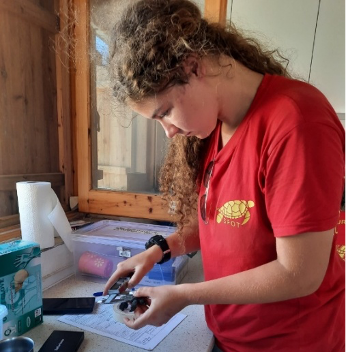

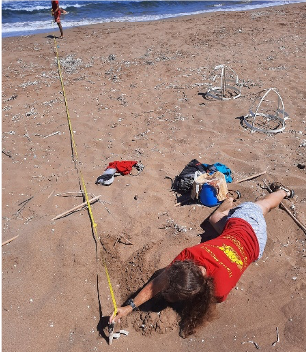

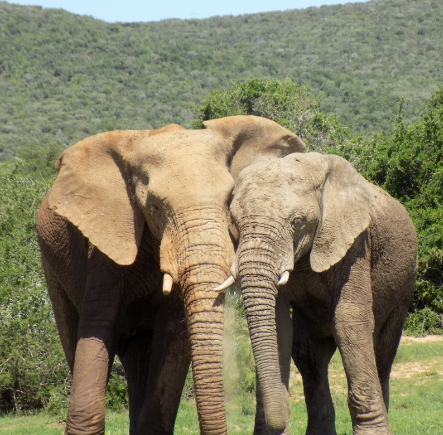

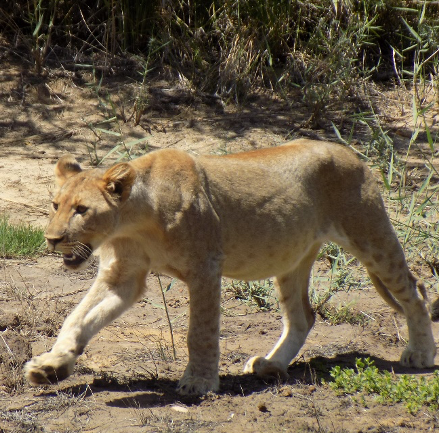



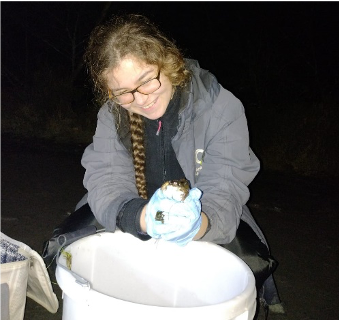


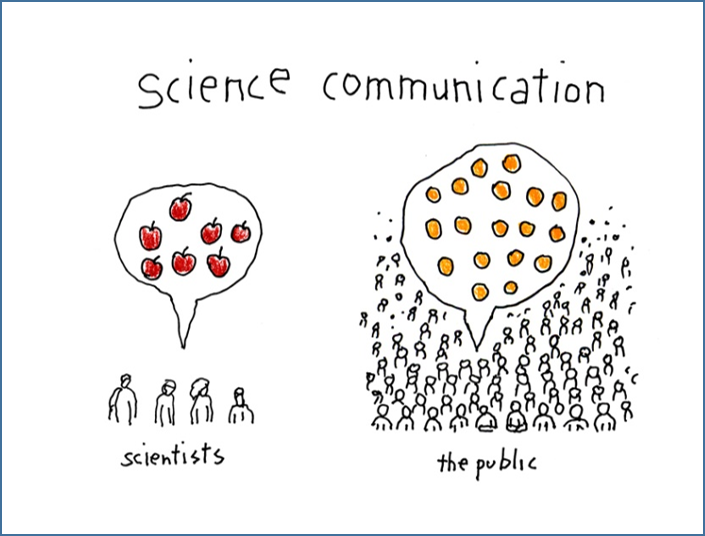
Hello friends, pleasant post and nice arguments commented
here, I am Naga Empire truly enjoying by these.
Empire88 merupakan situs slot online terbaik dan populer saat ini. Dengan fitur beragam dan koleksi game yang lengkap membuat kalian tidak akan pernah bosan bermain game slot onilne di Empire88. Jadi tunggu apalagi? segera bermain game slot online di Empire88.
Indocair merupakan situs slot online terbaik dan populer saat ini. Dengan fitur beragam dan koleksi game yang lengkap membuat kalian tidak akan pernah bosan bermain game slot onilne di Indocair. Jadi tunggu apalagi? segera bermain game slot online di Indocair.
Paman Empire merupakan situs slot online terbaik dan populer saat ini. Dengan fitur beragam dan koleksi game yang lengkap membuat kalian tidak akan pernah bosan bermain game slot onilne di Paman Empire. Jadi tunggu apalagi? segera bermain game slot online di Paman Empire.
Raja Botak merupakan situs slot online terbaik dan populer saat ini. Dengan fitur beragam dan koleksi game yang lengkap membuat kalian tidak akan pernah bosan bermain game slot onilne di RajaBotak. Jadi tunggu apalagi? segera bermain game slot online di Raja Botak.